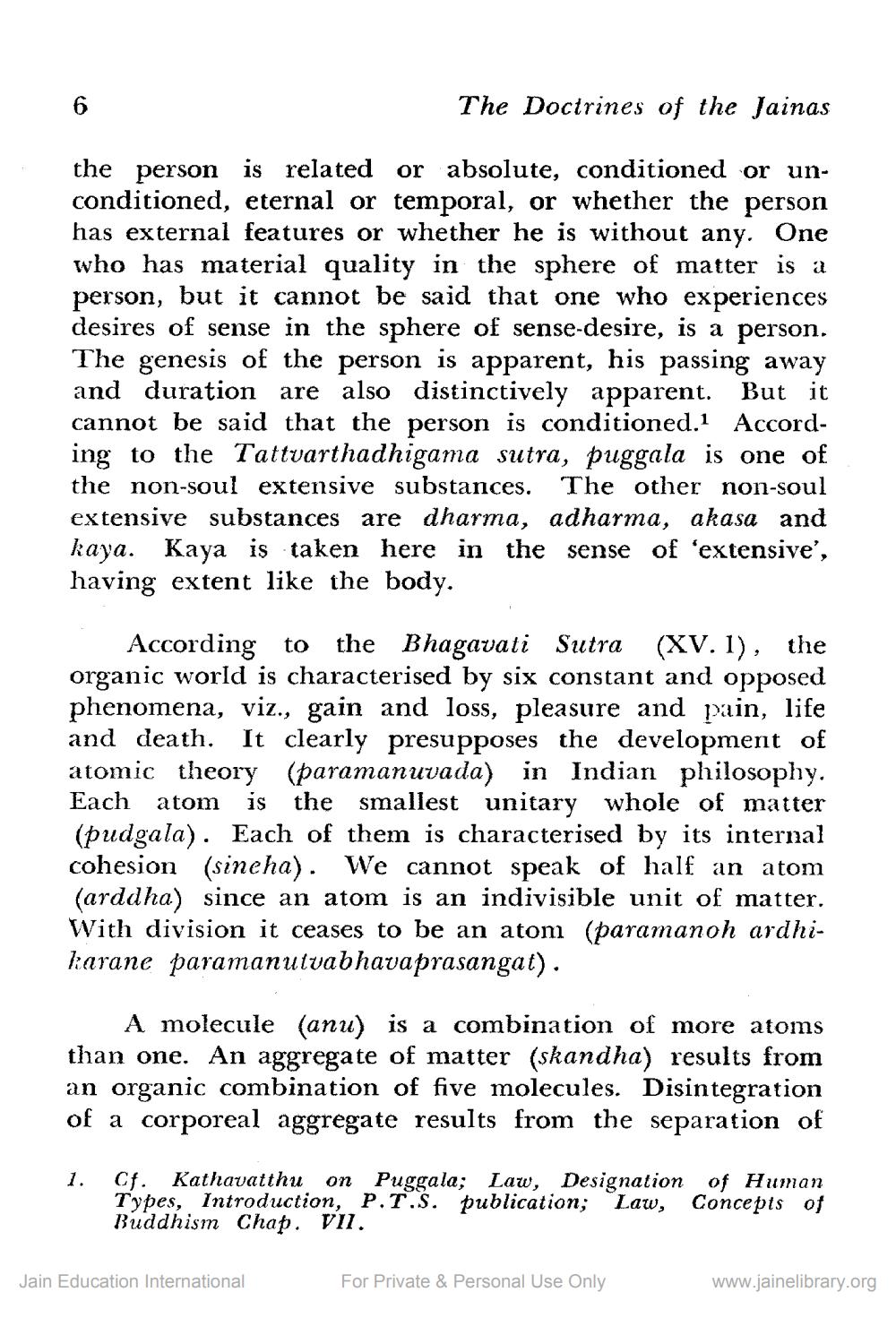________________
The Doctrines of the Jainas
the person is related or absolute, conditioned or unconditioned, eternal or temporal, or whether the person has external features or whether he is without any. One who has material quality in the sphere of matter is a person, but it cannot be said that one who experiences desires of sense in the sphere of sense-desire, is a person. The genesis of the person is apparent, his passing away and duration are also distinctively apparent. But it cannot be said that the person is conditioned. According to the Tattvarthadhigama sutra, puggala is one of the non-soul extensive substances. The other non-soul extensive substances are dharma, adharma, akasa and kaya. Kaya is taken here in the sense of 'extensive', having extent like the body.
According to the Bhagavati Sutra (XV.1), the organic world is characterised by six constant and opposed phenomena, viz., gain and loss, pleasure and pain, life and death. It clearly presupposes the development of atomic theory (paramanuvada) in Indian philosophy. Each atom is the smallest unitary whole of matter (pudgala). Each of them is characterised by its internal cohesion (sineha). We cannot speak of half an atom (arddha) since an atom is an indivisible unit of matter. With division it ceases to be an atom (paramanoh ardhikarane paramanutvabhavaprasangat).
A molecule (anu) is a combination of more atoms than one. An aggregate of matter (skandha) results from an organic combination of five molecules. Disintegration of a corporeal aggregate results from the separation of
1. Cf. Kathavatthu on Puggala; Law, Designation of Human
Types, Introduction, P.T.s. publication; Law, Concepts of Buddhism Chap. VII.
Jain Education International
For Private & Personal Use Only
www.jainelibrary.org




